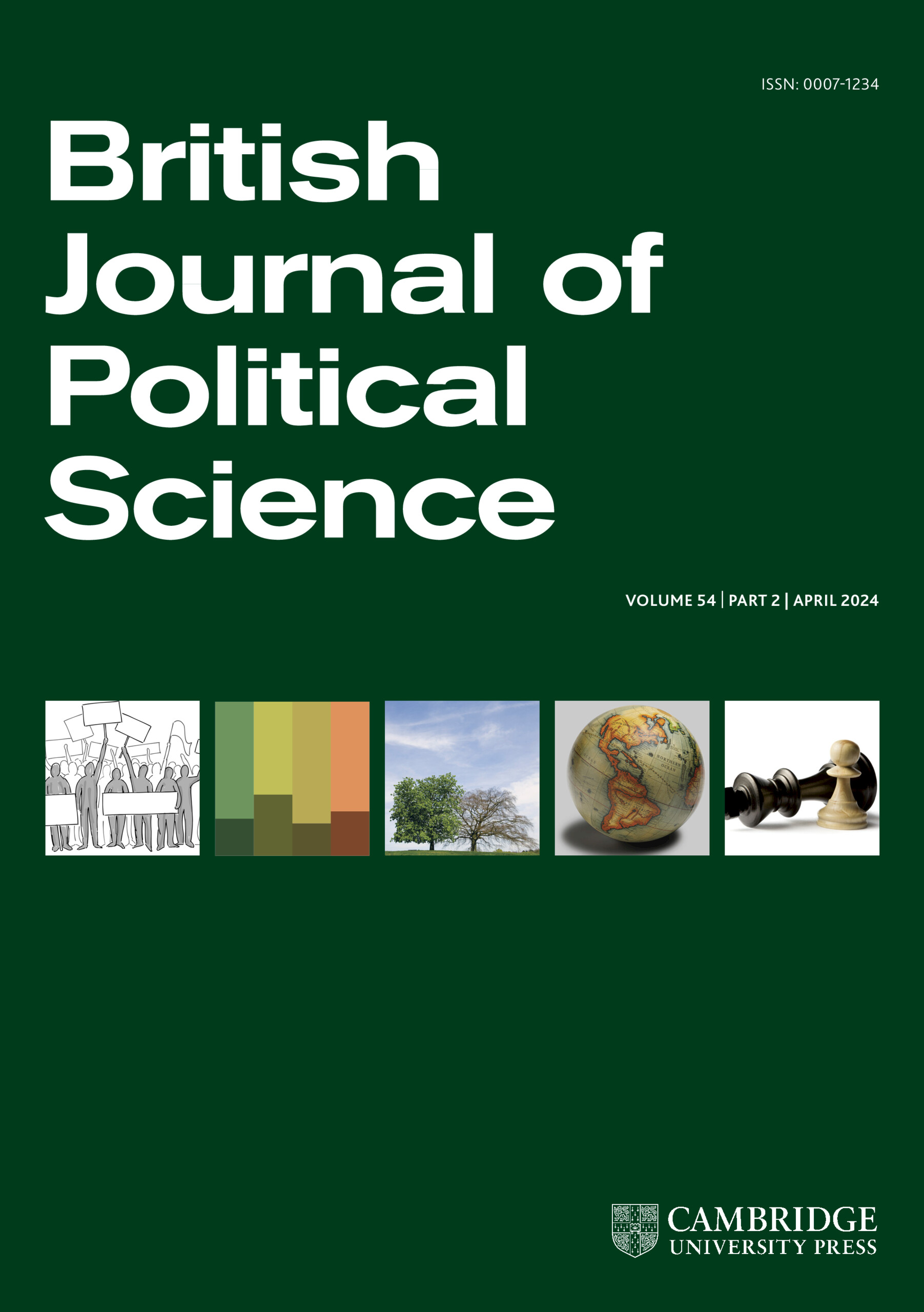Dual Evolutionary Foundations of Political Ideology Predict Divergent Responses to COVID-19
IF 4.6
1区 社会学
Q1 POLITICAL SCIENCE
引用次数: 0
Abstract
Abstract Political conservatives' opposition to COVID-19 restrictions is puzzling given the well-documented links between conservatism and conformity, threat sensitivity, and pathogen aversion. We propose a resolution based on the Dual Foundations Theory of ideology, which holds that ideology comprises two dimensions, one reflecting trade-offs between threat-driven conformity and individualism, and another reflecting trade-offs between empathy-driven cooperation and competition. We test predictions derived from this theory in a UK sample using individuals' responses to COVID-19 and widely-used measures of the two dimensions – ‘right-wing authoritarianism’ (RWA) and ‘social dominance orientation’ (SDO), respectively. Consistent with our predictions, we show that RWA, but not SDO, increased following the pandemic and that high-RWA conservatives do display more concerned, conformist, pro-lockdown attitudes, while high-SDO conservatives display less empathic, cooperative attitudes and are anti-lockdown. This helps explain paradoxical prior results and highlights how a focus on unidimensional ideology can mask divergent motives across the ideological landscape.政治意识形态的双重进化基础预测对COVID-19的不同反应
鉴于保守主义与顺从、威胁敏感性和病原体厌恶之间的充分联系,政治保守派反对COVID-19限制令人费解。基于意识形态的双重基础理论,我们提出了一个解决方案,该理论认为意识形态包括两个维度,一个反映了威胁驱动的顺从与个人主义之间的权衡,另一个反映了共情驱动的合作与竞争之间的权衡。我们在英国样本中使用个人对COVID-19的反应和广泛使用的两个维度——“右翼威权主义”(RWA)和“社会主导取向”(SDO)——来测试从这一理论得出的预测。与我们的预测一致,我们表明RWA(而非SDO)在大流行后增加,高RWA保守派确实表现出更多的关注、墨守成规、支持封锁的态度,而高SDO保守派表现出较少的同理心、合作态度,并且是反封锁的。这有助于解释矛盾的先前结果,并突出了对单向度意识形态的关注如何掩盖了意识形态景观中的不同动机。
本文章由计算机程序翻译,如有差异,请以英文原文为准。
求助全文
约1分钟内获得全文
求助全文
来源期刊

British Journal of Political Science
POLITICAL SCIENCE-
CiteScore
8.70
自引率
4.00%
发文量
64
期刊介绍:
The British Journal of Political Science is a broadly based journal aiming to cover developments across a wide range of countries and specialisms. Contributions are drawn from all fields of political science (including political theory, political behaviour, public policy and international relations), and articles from scholars in related disciplines (sociology, social psychology, economics and philosophy) appear frequently. With a reputation established over nearly 40 years of publication, the British Journal of Political Science is widely recognised as one of the premier journals in its field.
 求助内容:
求助内容: 应助结果提醒方式:
应助结果提醒方式:


